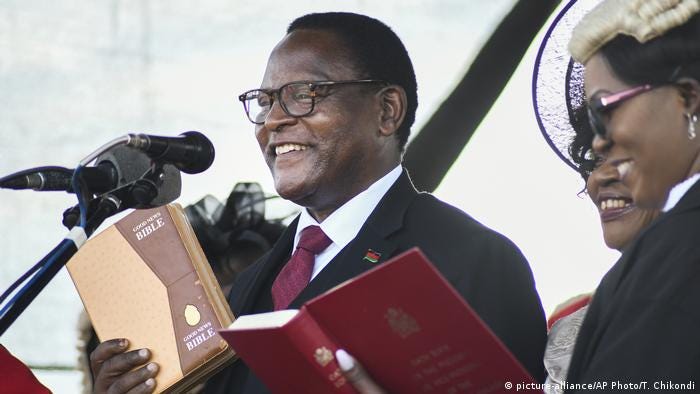Corruption fight will make or unmake Chakwera
So, what is Malawi President Lazarus Chakwera’s game-plan on corruption? That is the question bothering many citizens, civil society, and development partners.
MALAWI: So, what is Malawi President Lazarus Chakwera’s game-plan on corruption? That is the question bothering many citizens, civil society, and development partners.
Close to two years into the office now, Chakwera’s tenure seems to be more defined by the growing reports of corruption and wanton abuse. Self-enrichment by the ruling elite seems to be on the prowl at the seemingly helpless watch of the President. Akin to what used to happen during the former Presidents, Peter Mutharika and Joyce Banda’s eras.
It started with the alleged MK6.2 billion Covid-19 funds abuse. Today, the much-touted Affordable Input Program is in a mess, amidst reports of corruption.
The Malawi Energy Regulatory Authority (MERA) and National Oil Company of Malawi (Nocma) fuel importation imbroglio still has that lingering aftertaste of corruption, and the furore on the award of the K48 billion Marka-Bangula railway has the smell of corruption all over it. There could be more.
While Malawians expect decisive leadership in taking action against such reported cases of abuse, fear is now gathering among all and sundry regarding President Chakwera’s slow and, tellingly, half-hearted approach in the corruption fight.
The firing of Malawi Congress Party’s (MCP) Ken Kandodo from the cabinet last year following his implication in the covid-19 fund's abuse was heralded as a welcome gesture in the war against corruption. So was the dismissal of UTM’s Newton Kambala from the cabinet over the Nocma fuel importation saga.
However, two weeks after his arrest by the Anti-Corruption Bureau (ACB) over his alleged involvement in corruption over the sale of land in Salima, Minister of Lands and Housing, Kezzie Msukwa, is still part of the cabinet, enjoying all the privileges and benefits. President Chakwera could not strip him of his cabinet on the excuse that the Malawi leader was on leave.
Quite laughable, Isn’t it?
But that’s just one of the leadership missteps by the President so far. Quite to the disappointment of many who expected him to go one better than his two predecessors.
The recent attempt by the government to offer amnesty to all those under investigation for defrauding the government has been widely understood by the citizens as Chakwera’s move to shield his ‘inner-circle’ team that may be implicated in the high-profile Zuneth Sattar’s corruption scandal.
Sattar is currently under investigation by both United Kingdom’s and Malawi’s anti-graft bodies over his involvement in corruption with the former Peter Mutharika and the current Lazarus Chakwera’s administrations.
Social media reports that high profile figures in the current Tonse Government administration are named in the Sattar corruption scandal are rife. Once prosecution of such cases begins, the development could offer the sternest test to President Chakwera’s stance on corruption.
The development could no doubt largely shape Chakwera’s legacy. But it could also offer the Malawi leader an opportunity to finally walk his fierce talk on corruption.
The first Malawian President with a pulpit background, Chakwera’s run for the State House was defined by his strong condemnation of “pervasive corruption” the former governing Democratic Progressive Party leadership.
“There are thieves in the government. We need to get rid of them by registering to vote and evict them from power,” he told Malawians in 2018 during one of his whistle-stop rallies in Mzimba.
Days later, Chakwera said he would prioritize corruption fight within 100 days of his presidency.
“I will give no amnesty to thieves. They have been giving each other amnesty for 25 years and enough is enough.”
Now at the helm of power, President Chakwera should no longer rely on strong speeches to fight corruption. He must act, without fear or favour.
One hopes that it is finally dawning on Chakwera that the fight against corruption is not in the interest of high-profile politicians in the Tonse Government. It is in the best interest of Malawians, 58 percent of whom gave him the five-year mandate to “clear the rubble”.
In a country where 30 percent of the national budget is said to be lost to corruption, the 2063 agenda could simply be some wishful thinking if serious action is taken against the vice.
*Fletcher Simwaka is a development communication specialist with an interest in political governance, gender, and climate resilience.





This is great article. Well written. Hopefully Dr Laz will act on the issues.